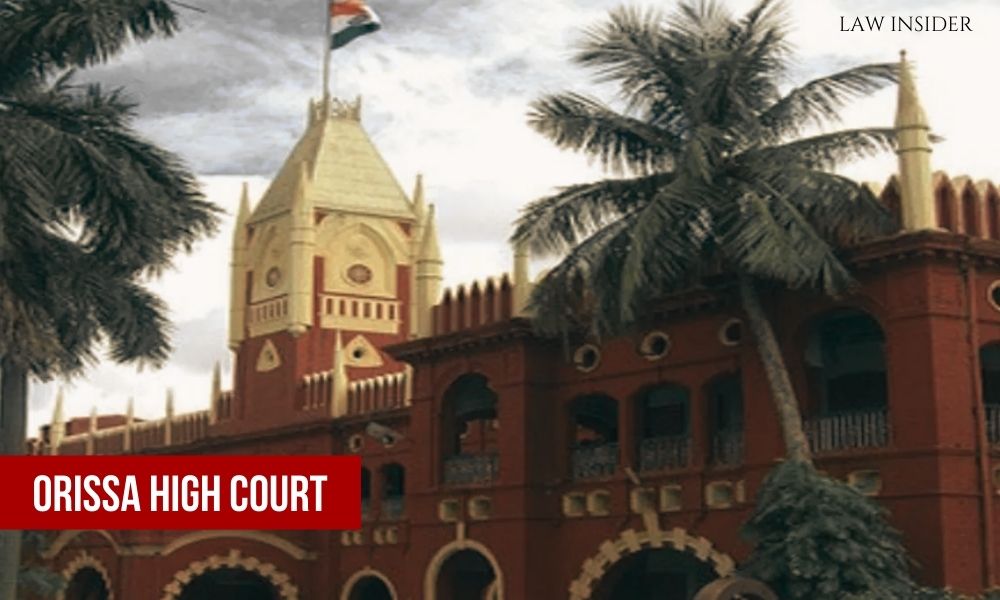LI Network
Published on:16 July 2023 at 15:55 IST
The Orissa High Court has taken a strong stance on a controversial sentencing decision in a rape case, summoning an explanation from the trial judge for awarding a punishment lesser than what is prescribed by law.
The move comes after widespread public outrage and concerns regarding the judiciary’s commitment to ensuring justice for survivors of sexual assault.
In a recent judgment, the trial judge sentenced a rape convict to a term of imprisonment that was significantly lower than the minimum prescribed punishment for such a heinous crime.
Responding to the public outcry, the Orissa High Court, exercising its supervisory jurisdiction, has sought an explanation from the trial judge regarding the rationale behind the lesser punishment. The court’s decision reflects its commitment to upholding the rule of law and maintaining public trust in the justice system.
The hearing took place in a hybrid manner, combining video conferencing and physical appearances, with both the appellant’s counsel, Mr. A.R. Panda, and the respondent’s counsel, Mr. P.B. Tripathy, presenting their arguments before Justice S.K. Sahoo.
During the proceedings, Mr. Panda brought attention to the judgment issued by the Additional Sessions Judge-cum-Special Judge, Jajpur Road, on May 30, 2022. The judgment sentenced the appellant to seven years of rigorous imprisonment and imposed a fine of Rs. 10,000 for the offense under section 376(1) of the Indian Penal Code (I.P.C.). Additionally, the appellant was sentenced to three years of rigorous imprisonment and a fine of Rs. 5,000 for the offense under section 450 of the I.P.C. The court ordered the sentences to run concurrently.
However, Justice S.K. Sahoo highlighted a discrepancy in the sentencing, considering the provision of section 376(1) of the I.P.C. The judge noted that the minimum prescribed sentence for the offense had been revised by the Criminal Law (Amendment) Act, 2018, which came into effect on April 21, 2018. The amended provision mandates a minimum sentence of ten years for the offense, along with the possibility of life imprisonment and a fine.
In his order, Justice S.K. Sahoo referred to a recent Supreme Court ruling, stating, “When a penal provision uses the phraseology ‘shall not be less than,’ the Courts cannot… impose a lesser sentence. The Courts are powerless to do that unless there is a specific statutory provision enabling the Court to impose a lesser sentence.” The judge emphasized that there is no provision granting discretion to reduce the minimum sentence in section 376(1) of the I.P.C.
Consequently, the High Court has directed the Presiding Officer responsible for the original judgment to provide an explanation for the disparity in sentencing. The officer is required to submit the explanation in a sealed cover to the court on or before July 19, 2023.
The Orissa High Court’s intervention in this matter serves as a crucial step towards ensuring accountability and transparency in sentencing procedures. The court’s demand for an explanation from the trial judge aims to shed light on the factors that influenced the decision to deviate from the prescribed punishment.
Cases of sexual assault are treated with utmost seriousness by the judiciary, as they inflict deep emotional and physical trauma on survivors and erode societal trust. It is essential that the punishment for such heinous crimes is commensurate with the severity of the offense and serves as a deterrent against future acts of violence.
The Orissa High Court’s action has been widely hailed as a significant move towards addressing the concerns surrounding the lenient sentencing in sexual assault cases. It signals the judiciary’s commitment to upholding the rights of survivors and maintaining public confidence in the justice system.

